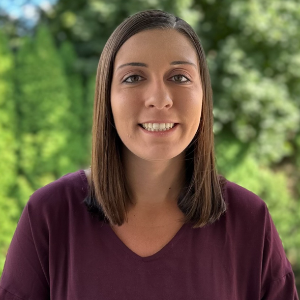Title : Characterization of dengue virus serotype 1 and 2 infection in human dermal fibroblasts
Abstract:
Dengue virus (DENV) is a mosquito-borne flavivirus with four antigenically distinct serotypes called DENV-1, DENV-2, DENV-3, and DENV-4. Many DENV infections are asymptomatic or lead to mild illness, but occasionally DENV infections can lead to severe disease, characterized by shock, hemorrhagic fever, and even death. Fibroblasts are the main cell type present in skin and release various cytokines and chemokines in response to pathogens.
Although dermal fibroblasts likely play an important role in regulating the early response to DENV infection, this role has not been fully characterized yet. In the present study, we characterized DENV infection in human dermal fibroblasts by measuring virus infectivity and assessing markers of innate immune response to DENV. Primary human dermal fibroblasts were infected with DENV-1 or DENV-2 and virus growth kinetics were compared with DENV-1/-2 infected BHK-21 cells, a hamster-derived kidney fibroblast cell line that has been previously shown to be highly susceptible to DENV.
The infected primary human dermal fibroblasts were also used to measure innate immune response markers - chemokines and cytokines - released in response to DENV infection using a custom 18-plex analyte Luminex kit. Our results show that, in contrast to BHK-21 cells, infection of human fibroblasts by DENV-1 or DENV-2 at low multiplicity of infection (MOI) (0.01 and 0.1) does not induce cytopathic effects (CPE), and does not yield infectious DENV at any of the assessed time points postinfection. However, infection at high MOI (5 and 10) induces morphological changes in human fibroblasts by 6 days post-infection for DENV-2 and 10 days post-infection for DENV-1. Cell culture supernatants collected from high MOI infection of fibroblasts with DENV-1 lack measurable infectious virus, while cell culture supernatants collected from DENV-2 infected fibroblasts yield measurable infectious virus. In addition, assessment of the innate immune response of DENV-2 infected fibroblasts (at high MOIs) show expression of several pro-inflammatory cytokines and chemokines (IL-6, IL-8, CCL2, CXCL10, CCL5, CCL7, and CXCL1).
These results indicate that infection of human fibroblasts at high MOIs with DENV-2 may be used to characterize the early stages of DENV infection and antagonism of the innate immune response to infection. This study was funded by Takeda. What will audience learn from your presentation? From this presentation, the audience will learn new information about the role human dermal fibroblasts play in response to infection by DENV-1 16007 and DENV-2 16681, including the innate immune response of fibroblasts against each serotype.
This study furthers dengue research by introducing a novel, reproducible method for assessing infection against dengue viruses and vaccine strains. Lastly, the work to be presented identifies potential dengue virus evasion mechanisms that should be considered by the developers of vaccines and antiviral drugs to control DENV pathogenesis in humans.



